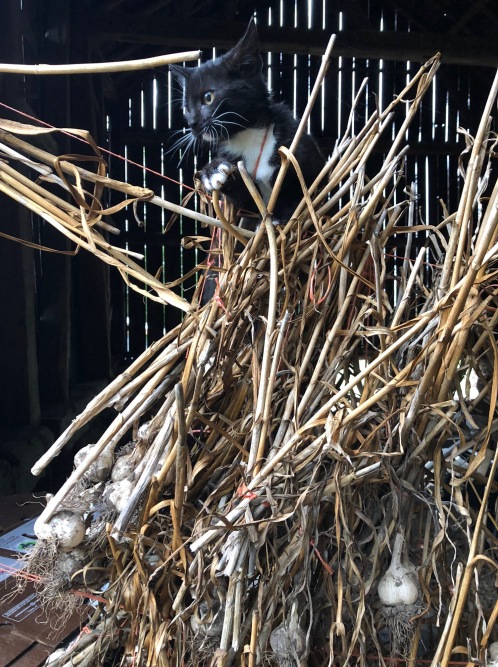Questions
I am coming to recognize the inherent power of questions. A timely, well-articulated question can, if given its due, change the course of things. I was faced with one such question last Thursday; leveled to me over the phone, from none other than Oren Jakobson.
I was at the library, riding the high of my honeymoon enthusiasm for our Supper Club idea (free meals, open to everyone, based off of farm leftovers), working on a last-minute financial report when I got a call from Oren. We discussed the business at hand, after which he graciously asked: “Can I give you some feedback on your meal idea?”
Here I must admit that I had told Danny days before that I was okay to be moving forward with this process sans-Oren. I love the guy; he’s brilliant, but the fact of the matter is that he tends to take up a lot of oxygen and conversational space in a group. However, something inside me just couldn’t resist his offer. Sure, I told him.
Here the floodgates opened. While diving into the details of his experience running Riverview Gardens in Appleton, a non-profit organization with a mission of empowering “vulnerable” groups within the community and making connections between social groups, Oren recalled having the same ideas and motivations as I had expressed. After years of actively working towards such ideals, he had found that it is simply not that simple. There is no easy way to bridge these gaps, and besides, his experience was that many “impoverished” people were that way because they were sick of the rat race of full-time employment, etc., and were in fact richer in many terms than the well-to-do among us. Our classifications are too basic, he said, never reaching the complex roots of these realities. Where was the empowerment in simply feeding people once in a while? Who would really stand to reap the most benefit – us or the ones we serve? What would be changed when, after putting on these meals for a period of time, we decided not to go through the effort anymore? It was a wonderful, revelatory conversation; the gist of which, from my comprehension, was Oren asking the question, “Why?”
I mulled this over obsessively for days, discussing it with everybody from my wife to the vaguest of acquaintances. Fanni, from her wisdom, responded with a simple, resounding question of her own. “Who says every idea needs to be a game-changer?” Most other people, lacking the hands-on experience, and thought-depth of Oren Jakobson, simply said, “Yeah, I can see the vision; it sounds like a wonderful idea.” But still I was not satisfied.
It comes down, I realized, to honesty and motive. And Danny and I had been quite upfront with each other about our personal motives from the very beginning. The fact is that the idea has always been one-part philanthropy and two-parts self-actualization. For my part, I have a hard time rationalizing a community with hungry people and wasted food; I’ve got a strange attraction to all things free, and simply love the rush of foodservice and the stimulation of logistical hammering. Short of putting words into Danny’s mouth, I feel safe saying he’s got an intense aversion to even the slightest shadow of boredom.
So I guess we answered the question “Why?” with the equally powerful, “Why not?” We can do it, after all; we’re not affiliated with anyone and there’s really no one to stop us. Plus, I can’t help but open myself to the possibility that by acting on inspiration, and injecting a living idea into the world, the possibility exists that it may take on a life of its own, becoming something beautiful and yet unimagined. And finally, the blooming radical in me can’t let go of the idea that feeding people free, homemade sauerkraut is one of the most liberating acts a person can take. And that’s enough.
So now, having pushed past the pinnacle of this first question, Danny and I are on to more questions; the most frequent of which being, “Would you be willing to help us?”
